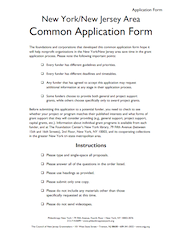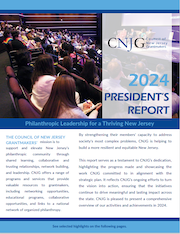Site Search
- resource provided by the Forum Network Knowledgebase.
Search Tip: Search with " " to find exact matches.
This weekly funder briefing webinar series welcomed New Jersey-based grantmakers along with national funders and provided an opportunity for grantmakers to hear from a wide range of nonprofit experts. This series started on March 13, 2025, less than a...
With the recent passage of the federal budget bill that slashed Medicaid and food assistance for millions of Americans while directing $170 billion to border militarization and the surveillance, detention, and deportation of immigrants, it is clear...
You don’t need to be a technologist to understand that Artificial Intelligence (AI) is changing our world, including philanthropy and the nonprofit sector.
As you attend next month’s ...
We’re coming off a historic week for New Jersey. As we went to the polls for the November elections – including voting for governor, we witnessed democracy in action, a...

More than a decade ago, the Council of New Jersey Grantmakers and Philanthropy New York spearheaded a project to develop common application and report forms to help streamline the grant...
Welcome to the new year! It was wonderful seeing so many members at the 2023 Annual Meeting & Holiday Luncheon on December 14. Both our luncheon plenary and workshop...
A new year always feels like a fresh start—a chance to reflect on where we’ve been and chart a course for where we’re headed. As we step into 2025, I want to take a moment to thank you for the incredible work you do every day to strengthen New Jersey’...
With the new federal administration comes many new executive actions that directly impact philanthropy and its nonprofit partners. It is an ever-changing, and fluid situation, causing confusion both within the government and across the social sector (...
When considering how to improve health outcomes for low-income individuals, most people think about providing access to good medical care and keeping the cost of that care as low as possible. What people rarely think about is the connection between...
Hosted by United Philanthropy Forum, in partnership with the Council on Foundations...

CNJG's President's Reports

